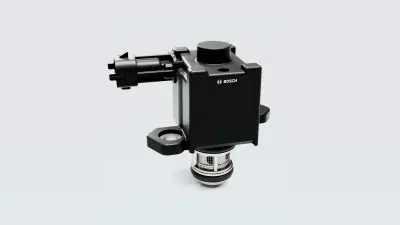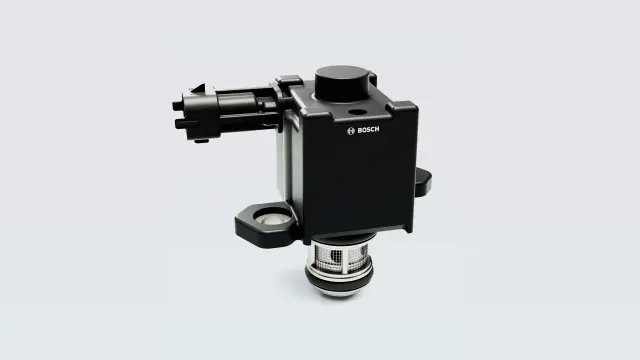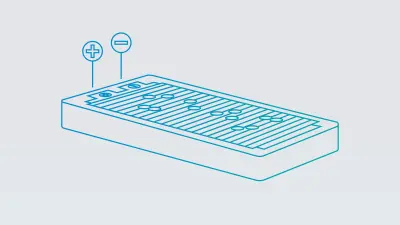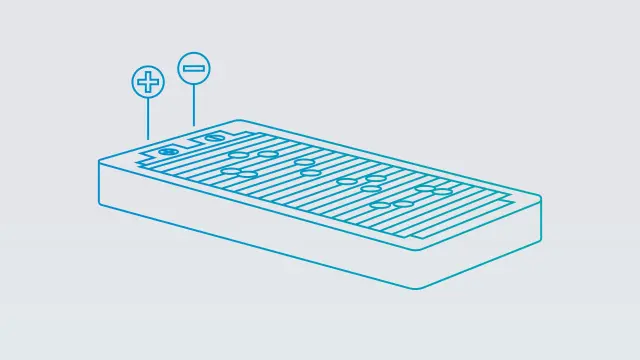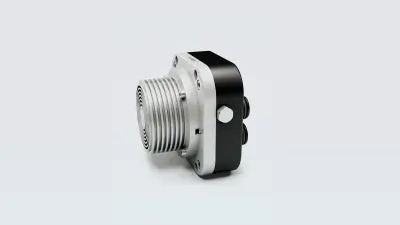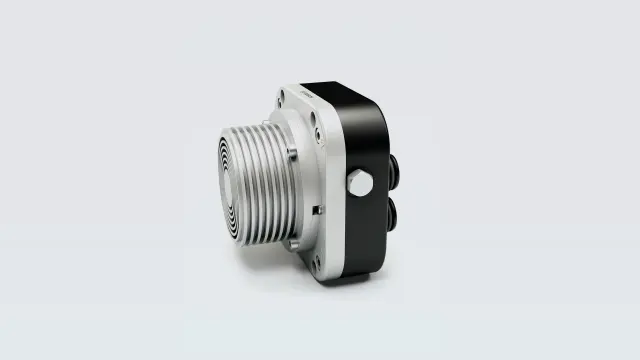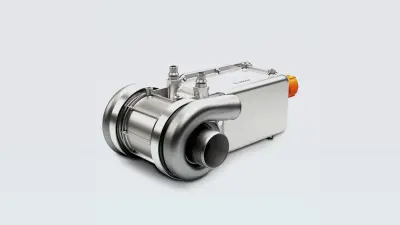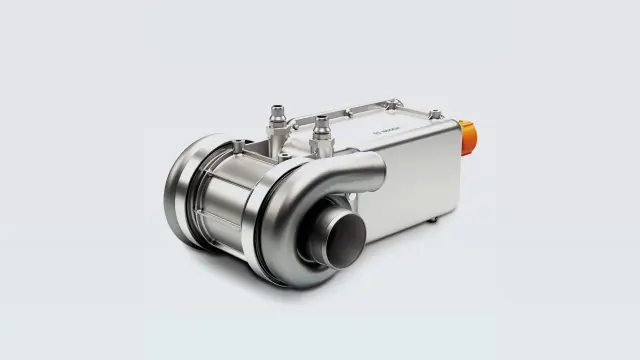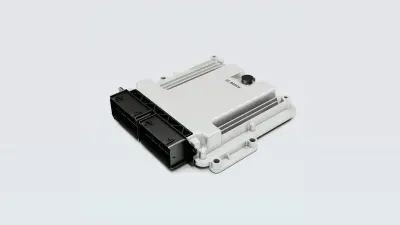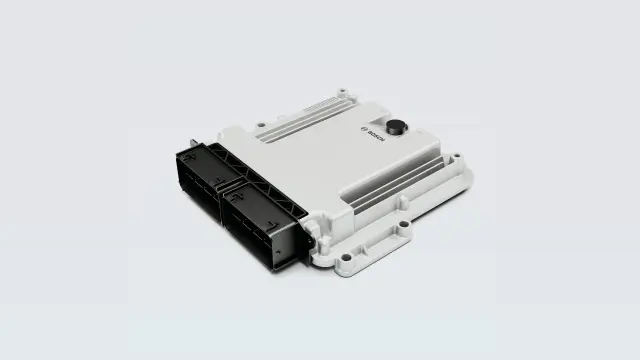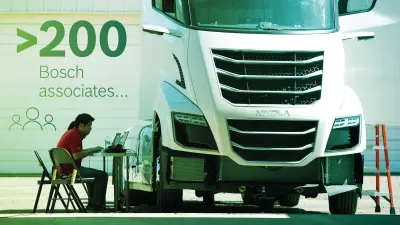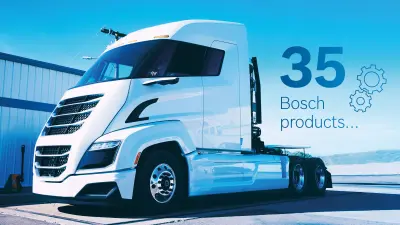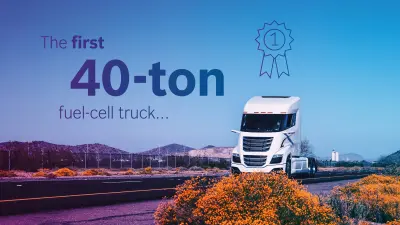Truck Yeah!
How Christian Appel is helping get a fuel-cell truck on the road

The Bosch engineer Christian Appel is working with the Nikola Motor Company startup to develop the world’s first 40-ton truck to feature a fuel-cell powertrain. It’s an electrifying opportunity — and it could well herald the start of a new era in freight haulage.
Truck tuning in Arizona
Shimmering heat waves ripple across the asphalt of the test and engineering center situated on the edge of the Phoenix Sonoran Preserve in Arizona. Christian Appel briefly removes his baseball cap to wipe the sweat from his brow. He fixes his gaze on the horizon, where the outline of a snow-white truck is just about visible. The team around him is busy adjusting settings, calibrating equipment, and calling out the latest status updates. “OK, let’s get the truck back on the track,” Appel says into his radio. This is the fifth time they have carried out the procedure today. It’s all about fine-tuning. Soon everything will be exactly right: the control system, fuel cell, and steering. Soon it will be showtime.

“We’re redefining truck driving from scratch. We’re helping a startup turn its vision into reality.”
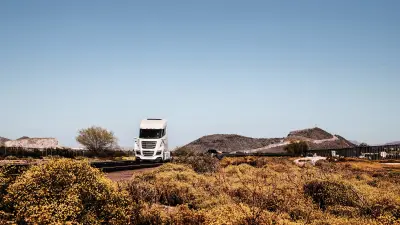
Time to get trucking
The 32-year-old German has been living and working in Phoenix in the U.S. for close to a year. Together with various other Bosch associates, Appel has been assigned to work with Nikola Motor Company to help get the emerging technology of fuel cells up to speed for commercial truck production. “A fuel-cell powertrain is lighter and takes up less space than its battery-driven equivalent,” the engineer says.
Nikola Motor Company has come up with a smart business model that involves leasing its semi-trucks on a mileage basis including fuel. The startup is also building filling stations that process hydrogen using renewable forms of energy and store it until it’s needed. The electricity required is purchased when it’s cheap — a sustainable model that makes the use of fuel-cell trucks economically viable.
The mission: to achieve a world first
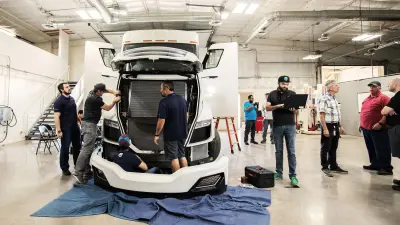
As customer chief engineer, Appel is responsible for the technical coordination of the Bosch components in the truck known as Nikola Two. There are plenty of those components: electric motors for the e-axle, the vehicle control unit, and key components of the hydrogen fuel cell. What’s more, the new Bosch mirror camera system has replaced the truck’s side-view mirrors, and the Bosch Perfectly Keyless system means truck drivers no longer have to search for their keys.
Appel’s biggest challenge is the sheer volume of different challenges thrown up by the project. “We’re not just improving a vehicle that has already been launched, but rather working with the customer to essentially redefine truck driving from scratch. We’re helping a startup turn its vision into reality,” Appel says. And Bosch also benefits, he explains: “Our in-depth knowledge of a powertrain technology that could revolutionize freight haulage is giving us a competitive edge.”

“Christian may not be the father of the Nikola Two, but he is definitely our godfather! Without him and Bosch, we would never have achieved all this. Bosch is our most important supplier.”
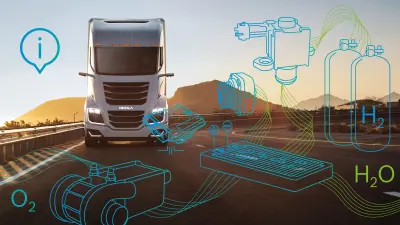
A team for any task
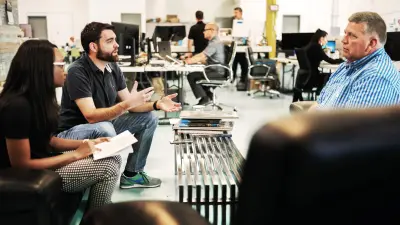
But Appel’s work as an engineer involves more than just developing truck components: “Networking is really the key to what I do. I talk to customers and pass on their requirements to the relevant Bosch colleagues,” he says. He utilizes a worldwide network. Over 200 associates from six divisions worked on the development of the truck. “Whether automated, connected, or electrified — we have the right experts who can provide support. There aren’t many companies that can offer that,” Appel says. What he prizes above all is the sense of team spirit: “The teamwork on the project is fantastic. Everyone is doing the best they can to help get a truly unique truck on the road. That’s a great feeling!”
Five facts about work on the Nikola Two project
Time to recharge
Ten days later, they've achieved their goal. Nikola Two is unveiled to huge crowds at a public demo day in Scottsdale, drawing an enthusiastic response from the trade press. The next job for the truck godfather is to help get Nikola Two into production. The goal is to make 35,000 trucks a year, with production kicking off in 2022. But first it’s time for a well-earned break.
“There’s a great hiking trail through the desert that starts just behind our house. Walking that trail with my son is exactly the kind of break I need,” Appel says. The sun slowly sets behind Arizona’s desert mountains as both Christian Appel and the Nikola Two recharge their batteries, ready for their next mission.

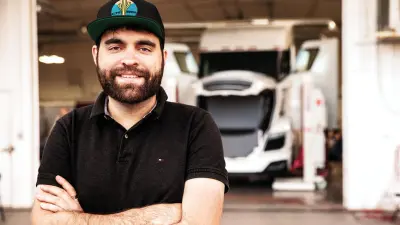
Christian Appel
customer chief engineer, Bosch Engineering
After studying mathematics, Appel joined Bosch seven years ago. He is currently working in Phoenix, Arizona, living an authentic startup experience with Nikola Motor Company — and relishing every moment. Once this project is over, he will be transferring what he has learned back into the Bosch world, and there will be plenty of memories of his time in the U.S. that he will never forget: “We went night diving with manta rays in Hawaii. It was a truly unforgettable experience — and it even inspired me to get a tattoo!”



